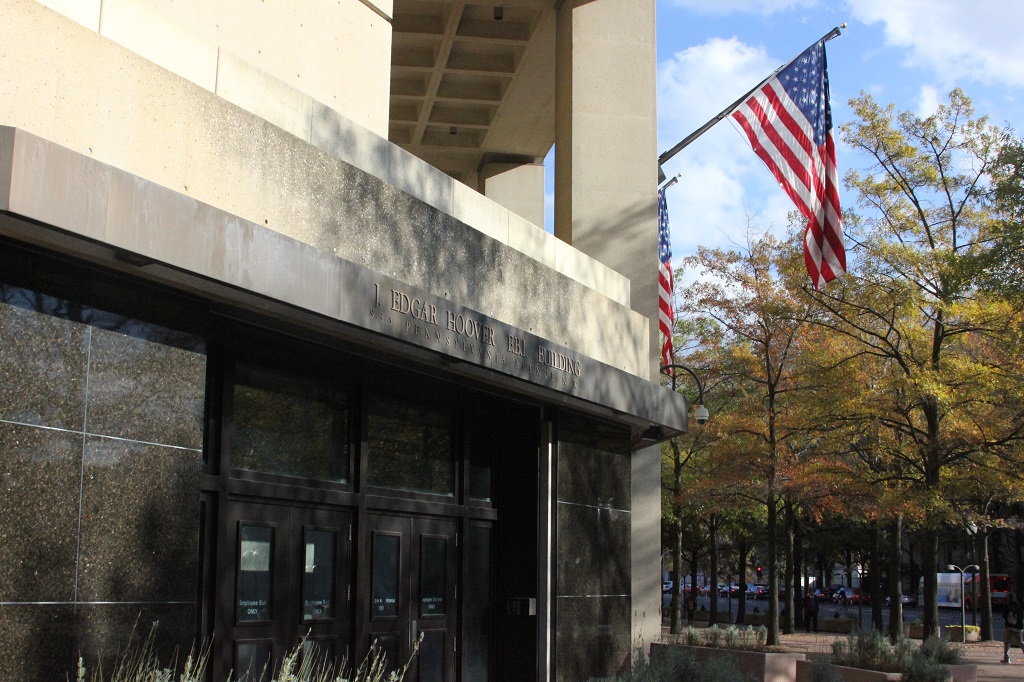What Went Wrong With ‘What Went Wrong at the FBI’
You may be forgiven for having missed Thomas Baker op-ed, “What Went Wrong at the FBI,” published in the Wall Street Journal on March 19. Eminently forgettable in its own right, the piece is worth noting because, in at least two ways, it highlights how much has changed since Donald Trump took office.

Published by The Lawfare Institute
in Cooperation With

You may be forgiven for having missed Thomas Baker op-ed, “What Went Wrong at the FBI,” published in the Wall Street Journal on March 19. Eminently forgettable in its own right, the piece is worth noting because, in at least two ways, it highlights how much has changed since Donald Trump took office.
Baker, a retired FBI special agent and legal attaché, observes with concern that “Americans have grown increasingly skeptical since 2016” of the FBI. He is “troubled by this loss of faith” in what was “once regarded as the world’s greatest law-enforcement agency”—a loss of faith caused by “lapses” apparently including the conduct of FBI agent Peter Strzok and the bureau’s “egregious” application for a FISA warrant against former Trump campaign adviser Carter Page. Baker seeks to explain the root cause of those lapses. The original sin, he writes, was “a cultural change that occurred in the wake of the 9/11 attacks”: the FBI “set out to become an ‘intelligence driven’ organization.”
Baker contends that the FBI should have remained purely a law enforcement agency, safe behind the “’wall’ between criminal and intelligence investigations.” This “cultural change” from law enforcement to counterintelligence is what explains all of the bureau’s current troubles—which for Baker include former deputy director Andrew McCabe’s “lack of candor”; the blurring of the once-bright line that “separates the legal from the extralegal” by vesting increased power in “‘politically sensitive’ individuals at headquarters” rather than stalwarts in the field; and the “abuse” of conducting electronic surveillance on Carter Page by “shad[ing] the truth in a FISA application — as occurred with the ‘Steele dossier.’”
The FBI’s post-9/11 embrace of counterintelligence was a mistake, Baker claims, because a “law enforcement agency deals in facts,” while an “intelligence agency deals in estimates” and must “often bend a rule, or shade the truth, to please [its] political masters.” In other words, spies lie, while cops speak truth to power. Of course, law enforcement agencies and intelligence agencies alike can be guilty of shading the truth—as illustrated from as far back as the Church Report in 1976 to as recently as a March 18 article in the New York Times on “testilying.” Baker’s former colleagues at CIA, NSA and other U.S. intelligence agencies would likely take issue with his casual dismissal of their integrity and professionalism.
Baker seems also to have forgotten the important lesson of 9/11—that law enforcement is only one way, and not always the best way, to deal with foreign intelligence threats such as international terrorism. This lesson was expensive to learn in both blood and treasure, and abandoning the FBI’s counterintelligence mission flies in its face. Baker complains about FBI headquarters—as virtually every FBI agent has done at one time or another—but never engages with the idea that counterintelligence requires more centralization than ordinary law enforcement because the threat is national and international rather than local or regional.
Baker also profoundly misunderstands the Foreign Intelligence Surveillance Act. He says that “FISA was never intended as a tool to pursue Americans” but only “agents of a foreign power”; that it “was not intended to be used in criminal prosecutions”; that it was and is an “abuse” to seek a FISA warrant “when one would ultimately pursue a prosecution”; and that the “use of FISA to target a U.S. citizen is the most egregious abuse uncovered so far.”
All this is flatly incorrect. FISA’s definition of “agent of a foreign power” expressly includes U.S. citizens who knowingly engage in espionage, sabotage, or international terrorism, and Americans who satisfy the definition are legitimate FISA surveillance targets. Indeed, in 2002 the FISA Court of Review found it “virtually impossible to read the 1978 FISA to exclude from its purpose the prosecution of foreign intelligence crimes, most importantly because, as we have noted, the definition of an agent of a foreign power—if he or she is a U.S. person—is grounded on criminal conduct.” Quoting from the Senate’s 1978 report on the law, the court explained: “U.S. persons may be authorized targets, and the surveillance is part of an investigative process often designed to protect against the commission of serious crimes such as espionage, sabotage, assassination, kidnaping, and terrorist acts committed by or on behalf of foreign powers. Intelligence and criminal law enforcement tend to merge in this area.”
Stepping back from the particular pathologies in Baker’s op-ed, two broader points come into focus. First, this is a piece that, just a few years ago, would have been anathema to the Wall Street Journal’s editors and their political allies, calling as it does for a return to a pre-9/11, law-enforcement mentality at the bureau and significant limits on foreign intelligence surveillance. If Susan Rice had advanced such proposals in 2016, the Journal likely would have accused her of criminal negligence, if not treason. It is hard not to understand this shift as anything other than instrumental, reflecting a relatively consistent political perspective rather than a radical rethinking of counterintelligence policy.
Second, it is an op-ed almost wholly untethered from basic facts and law. Of course, our politics have never been perfectly accurate, and our politicians have never been perfectly honest. But it’s hard not to understand the publication of this piece as reflecting increased tolerance for magical argument in an era of increasingly routinized falsehood.
There is nothing new about efforts to advance facially neutral arguments, including arguments about the FBI and FISA, in support of a political agenda, such as defending a president of the United States. But such efforts are persuasive only when properly anchored in accuracy. Judged by that standard, Baker’s opinion does not deserve to be taken seriously, except perhaps as a disturbing sign of our times.





